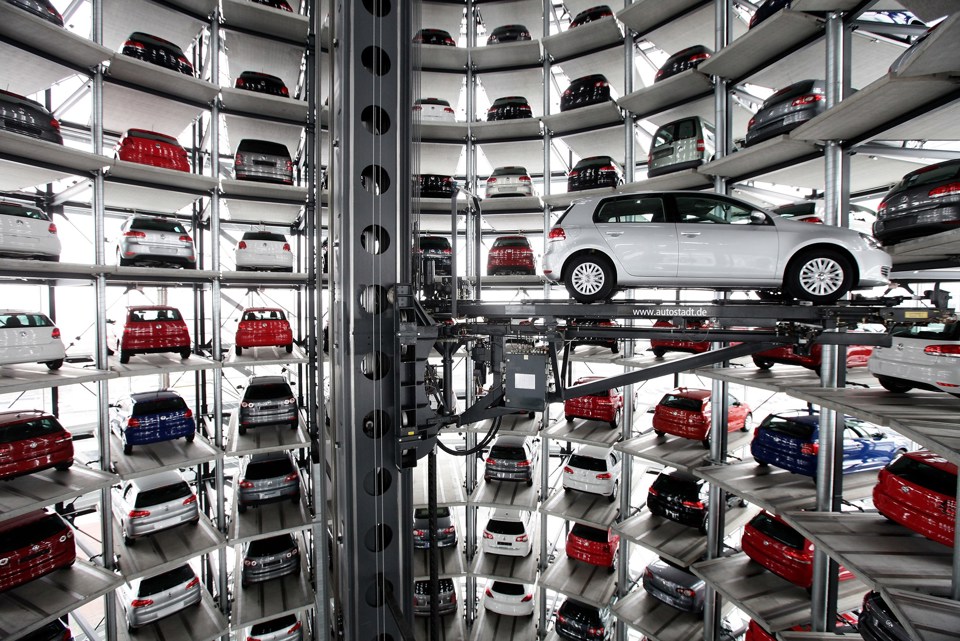An impact on the future used values of Audi, Volkswagen, Seat and Skoda cars with CO2 irregularities is now ‘likely’, according to vehicle pricing experts.
CAP Automotive estimates that there are 70,000 affected vehicles in the UK, after Volkswagen Group had earlier said up to 800,000 of its vehicles globally may have higher CO2 emissions than stated. And, with the CO2 values of affected vehicles expected to increase, CAP suggests this could prove detrimental to future residual values (RVs).
Fleet News revealed last week how Volkswagen Group brands in the UK - VW, Audi, Skoda and Seat - told fleets they could not currently guarantee the CO2 emissions of certain vehicles. Quoted figures were instead being labelled "provisional", with disclaimers appearing on all of the VW Group manufacturers’ websites.
However, there is still no information regarding the cause of the irregularities and no timescale for when full details will be known.
CAP says that the 70,000 vehicles affected in the UK do not include unregistered vehicles, which will also be affected. Around 45,000 are 2015 registrations, representing 10% of Audi, Seat, Skoda, and VW volume. The only Audi model impacted is A1.
CAP estimates 189 current CAP IDs are affected under the “provisional” CO2 data guidance. Click here to discover which vehicles are affected.
Dylan Setterfield, senior forecasting editor at CAP, said: “Early feedback suggests many leasing companies will continue with ‘business as usual’, until more forensic detail is known. Some may remove these vehicles from their quotation systems.”
The Volkswagen Group has stressed that this is totally unrelated to the USA emissions scandal, regarding the use of defeat devices, and EPA NOx tests.
He continued: “It remains to be seen whether this will result in differences in BIK or VED bandings in all cases, although some changes are likely.
“The official line is that data is “provisional”, but it is expected that the CO2 emission values will increase for the highlighted vehicles.”
Volkswagen Group has said that if additional tax is incurred, the company intends to cover the cost to fleets and company car drivers.
Writing to Volkswagen customers, head of fleet Michael O'Shea, said: "The Volkswagen Group has informed relevant government authorities of this issue and intends to settle those potential additional taxes."
Setterfield concluded: “Some impact on future residual values is now likely, but remains impossible to quantify until full details are known.
“Ultimately, the physical characteristics of some cars are likely to change and this would be expected to have a negative impact on future demand. Conversely, it is possible that the future used value impact may be mitigated by short-term reductions in fleet registrations.”
For further analysis and what this may mean for fleets in terms of tax and residual values, see the next edition of Fleet News.
Will you order a Volkswagen, Audi, Skoda or Seat with provisional CO2 figures? Click here and vote in our online poll.





















Sage & Onion - 16/11/2015 13:40
The last paragraph is probably more relevant. Ultimately VW Group still produce quality, desirable and reliable cars and if less are sold now because buyers make a knee jerk reaction then demand will outstrip supply at de-fleet time and prop up any shortfall. Who knows it could even see a lift in RV's at de-fleet time when full disclosure of the rest of the industry is known. I still urge all fleet managers, especially those new to the role (and leasing companies if they have access to real life fuel data), to do the following exercise in a sample of their fleet. 1. Note down the "official" co2 on the V5. Also note where this sits on the BIK tax scale. 2. Take a sample period of 1, 3, 6, or even 12 months fuel usage and note the litres used. The longer the sample period, the better. 3. Capture the mileage for the same period. This can be taken from fuel card data, business mileage reports, trackers, maintenance records etc. 4. Multiply the fuel litres by 2.5835 for diesel or 2.2423 for petrol. This is the amount of "equivalent" co2 emitted, in kg, for every litre of fuel. 5. Multiply the result by 1,000 to convert to grammes of co2e. 6. Convert the mileage covered by the fuel into km by multiplying by 1.609. 7. Divide the grammes by the km to arrive at the actual real world g/km of co2. 8. Make a note of this against the note in step 1. 9. Compare the variances of "official" co2 against the real world co2 for each model of car and also note the variances on the BIK tax scale. 10. Now compare and see which models have the widest variance between "official" co2 and actual real world co2. 11. If you still think VW brands (if you run them) are worse than others then it confirms there's a problem with VW brands, but if not then keep an open mind and perhaps support VW a little. I appreciate that there is more to the co2 emissions that just the calculations above as real emissions depend upon different exhaust treatment and filtration systems but its a useful exercise just to see how the real world mpg compares to the "official" mpg and compare the variances to see what you feel more cheated by. This method only works if you capture all fuel and mileage, including private. If you only capture business fuel and mileage then the result could be erroneous if drivers are overstating their business mileage. It also only works if you use actual fuel used and not HMRC AFR rates etc.